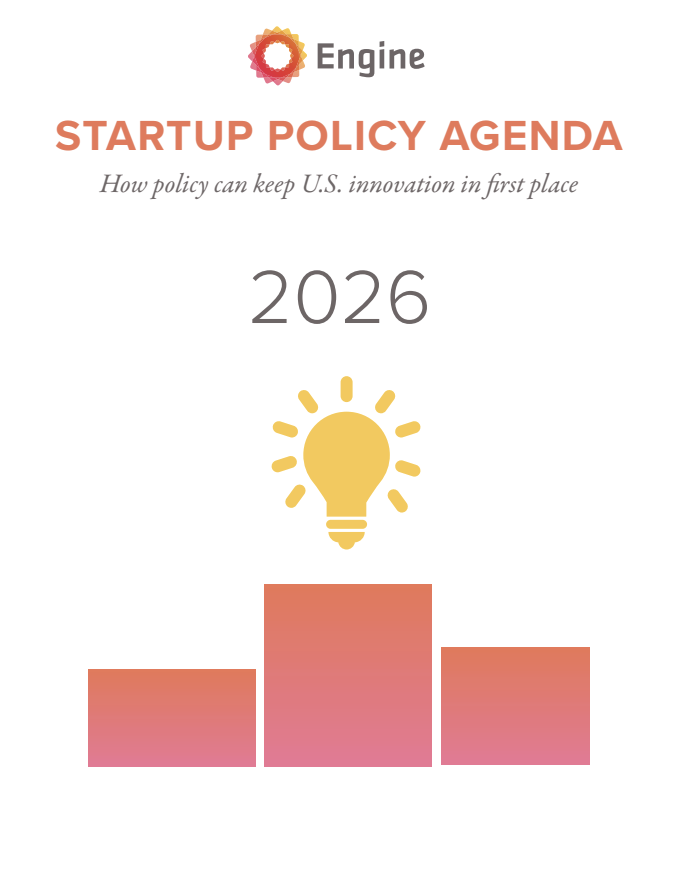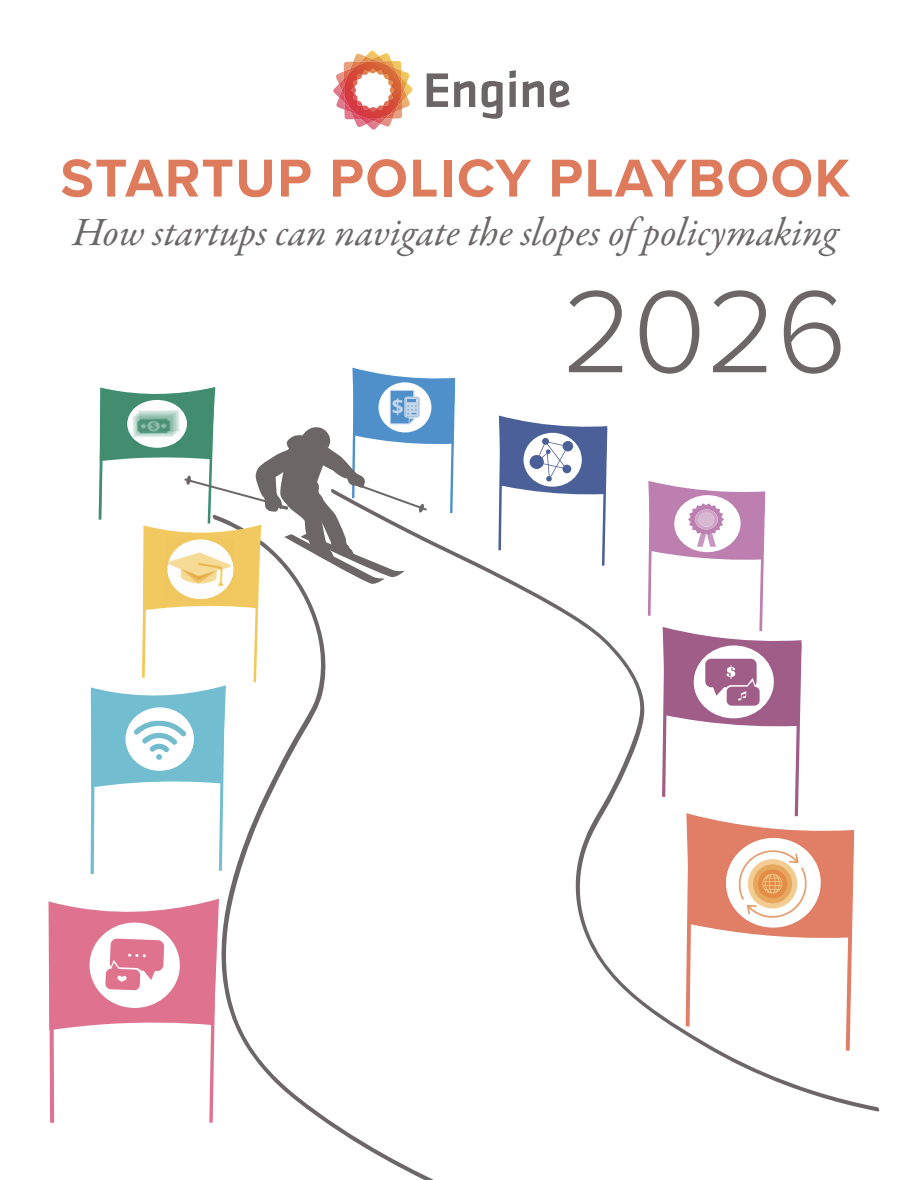The Big Story: Biden unveils infrastructure plan with broadband, tax proposals. President Joe Biden announced an ambitious $2 trillion proposal this week that would rely on a combination of spending and tax credits to upgrade and expand the nation’s infrastructure. In addition to devoting billions of dollars towards upgrading schools, improving roads and bridges, and spurring a shift towards clean energy sources, the plan would also allocate $100 billion towards the expansion of broadband to narrow the nation’s digital divide. In a speech on Wednesday announcing his infrastructure plan, President Biden said the connectivity funding would “make sure every single American has access to high-quality, affordable high-speed Internet.”
#StartupsEverywhere: Holland, Mich.
Headquartered in Zeeland, Michigan, Lakeshore Advantage is a nonprofit economic development organization that’s working to support startups, entrepreneurs, and businesses in West Michigan. We recently spoke with Amanda Chocko, the Director of Entrepreneurship at Lakeshore Advantage, to learn more about the organization’s work supporting local startups, the importance of reliable broadband services, and what the future holds for West Michigan’s startup community.
As Global Fight Over Digital Services Taxes Heats Up, U.S. Startups Stand to Lose
TLDR: As federal officials seek public input regarding the response to countries that have enacted digital services taxes (DSTs) on U.S. Internet companies, the startup community remains concerned that they will be affected by the levies in the form of increased costs for the services and products they rely upon. While the Biden administration and global officials work to reach a uniform digital tax framework, it’s critical that countries—and even U.S. states—refrain from imposing their own digital services taxes that could harm startup formation and success.
Proposals to Change Copyright Law: What Do They Mean for Startups?
Every day, people use the Internet to create and share content with others across the globe—and those users, and the Internet companies they rely on, each depend on a copyright framework some policymakers are looking to change. Specifically, a few members of Congress indicated they may be willing to re-open Section 512 of the Digital Millennium Copyright Act (DMCA). Unfortunately, the policy debate mostly revolves around large companies—both big tech companies and Internet platforms as well as large rightsholders in traditional content industries, like mainstream music or movies. But this area of the law is critical to all types of companies, Internet users, and creators. This post attempts to unpack some recent proposals, in an effort to help more stakeholders—especially tech startups—understand what is happening.
Startup News Digest 03/26/21
The Big Story: Removing barriers to entry for women entrepreneurs. Although the number of women-founded companies across the globe has doubled over the past decade—from 10 percent in 2009 to 20 percent in 2019—women entrepreneurs still face significant roadblocks when competing in the largely male-dominated technology sector. The gender disparity in the technology sector, driven in part by systemic sexism and responsibilities like child care and family caregiving, makes it more difficult for women entrepreneurs to break into the space with their own unique ideas and visions. Women represent just 11 percent of venture capital investment partners across the U.S., and women-led companies raise an average of 13 percent less in funding than their male counterparts. Women-led startups received only 2.8 percent of VC funding in 2019, while Black and Latino women founders combined to receive just 0.64 percent of total VC investments. That’s why it’s so critical for the startup community and policymakers to confront the challenges women entrepreneurs face and ensure that a diverse range of individuals are able to pursue entrepreneurship.
#StartupsEverywhere: Rochester, N.Y.
Arkatecht is a startup that creates professional development tools to help working parents advance and succeed in their careers. The company’s Atlast learning platform is specifically designed for parents working in human services fields—such as mental health and social work—to help them maintain a sound work-life balance. We recently spoke with Arkatecht’s Founder and CEO, Yasmin Mattox, to learn more about the startup’s focus on supporting working parents, what it’s like to be a woman founder, and why it’s important for policymakers to engage with the startup community.
Content Moderation Debate Needs Startup Voice
TLDR: A key House panel is holding a hearing this Thursday with the CEOs of Facebook, Google, and Twitter to examine the spread of extremism and misinformation online. It’s critical that policymakers concerned about the proliferation of harmful content across the Internet understand how potential legislative remedies would impact startups and other Internet companies’ ability to moderate user-generated content.
Startup News Digest 03/19/21
The Big Story: House passes legislation extending pathway to citizenship for Dreamers. House lawmakers voted yesterday to approve legislation that would give approximately 2.3 million Dreamers—undocumented immigrants brought to the U.S. as minors—certain protections from deportation and would provide a pathway to citizenship if they meet certain criteria. The bill’s passage is a critical step for millions of talented immigrants who help drive innovation and job creation across the tech sector.
#StartupsEverywhere: Philadelphia, Pa.
flipMD is a Philadelphia-based health care startup that lets physicians find consulting opportunities and allows companies to source medical talent for their projects. We recently spoke with the Founder and CEO of flipMD, Lauren Hanson, to learn more about her startup’s work, her experiences as a woman founder, and her thoughts on why it’s important for health care-focused startups to connect with physician consultants.
Statement on the American Dream and Promise Act
Today’s House vote in support of the American Dream and Promise Act is a victory for the millions of undocumented immigrants who were brought to the U.S. as children in search of a better life. Dreamers help drive U.S. innovation by launching startups, creating new jobs, and serving as critical sources of talent for the tech sector. By protecting Dreamers and providing them with a pathway to citizenship, the bill gives these talented individuals the legal certainty they need to pursue their ambitions—in the tech sector or otherwise—without the threat of deportation.
Startups Need Congress to Focus on Balance, Quality, and Inclusion When It Comes to IP
In letters this week to key congressional panels, Engine outlined startup-forward principles and priorities that we hope will guide Congress’s work on patent and copyright law this year. We wrote to the leaders of the Senate’s IP Subcommittee and the House Subcommittee on Courts, IP, and the Internet, encouraging each Subcommittee to promote and preserve balanced IP frameworks, emphasize patent quality, stress modernization, and advance diversity and inclusion.
States Push Unworkable, Likely Unconstitutional Content Moderation Bills
TLDR: Across the country, state legislators are pushing bills that would make it harder for Internet companies to moderate content on their sites and services. In addition to raising constitutional and legal problems, the state-level push to limit moderation would disproportionately harm small and emerging companies that are attempting to compete in the Internet ecosystem.
Startup News Digest 03/12/21
The Big Story: PRO Act would limit startups’ access to independent contractors. House lawmakers this week passed legislation—known as the Protecting the Right to Organize (PRO) Act—that would, in part, change the definitions of employees and independent contractors. By expanding the definition of an employee, the bill would make it more difficult for startups and other small businesses to hire the outside contractors they need to launch and grow their companies.
#StartupsEverywhere: Bellevue, Wash.
Policymakers Push Broadband in Stimulus Package
TLDR: As the House readies to approve a stimulus package that would provide billions of dollars for Americans and small businesses, policymakers are continuing to prioritize funding for broadband in order to narrow the nation’s digital divide. Efforts to improve Internet connectivity in rural and underserved communities across the country will not only benefit all Americans, but will also help lead to the creation of new and innovative startups needed to drive the nation’s economic recovery moving forward.
Startup News Digest 03/05/21
The Big Story: States push ahead on privacy in lieu of federal action. Virginia officially became the second state in the nation—following California—to implement its own comprehensive data privacy law last week. The passage of Virginia’s privacy law comes as other states—including Minnesota, New York, Oklahoma, Utah, and Washington—consider implementing their own sweeping data privacy measures.
#StartupsEverywhere: Durham, N.C.
Courtroom5 is a Durham-based startup that provides automated legal support to people representing themselves in civil court. We recently spoke with the Co-Founder and CEO, Sonja Ebron, to learn more about her background, the company’s use of artificial intelligence, and what policymakers can do to address funding disparities.
Workforce Mobility Act Statement
“Engine is proud to support the Workforce Mobility Act, legislation that would give workers the opportunity to launch their own competitive startups without being hindered by non-compete agreements. This legislation would spur startup formation across the country by removing barriers to entry that serve to stifle innovation and entrepreneurship.”
Stimulus Package Offering Billions in Relief for Small Businesses Advances to Senate
TLDR: Following House passage of President Joe Biden’s stimulus package this weekend, Senate Democrats are pushing forward with the measure that would provide billions of dollars to Americans and small businesses affected by the pandemic. As the Senate prepares to vote on the stimulus plan, it is important for policymakers to guarantee that the money set aside for struggling small businesses effectively provides the entrepreneurial community with the targeted emergency assistance it needs to drive the nation’s long-term economic recovery.
Startup News Digest 02/26/21
The Big Story: Despite progress, barriers still stand in the way of Black founders. Although the U.S. startup ecosystem is increasingly vast and diverse, Black entrepreneurs across the country still face barriers to entry—such as a lack of equitable access—that make it more difficult for them to compete with their peers. And the pandemic has only exacerbated some of these disparities, with a report from the Center for Responsible Lending finding that approximately 95 percent of Black-owned firms stood almost no chance of receiving a first round Paycheck Protection Program loan from a traditional bank or credit union.











